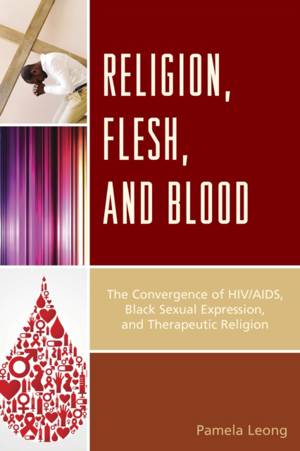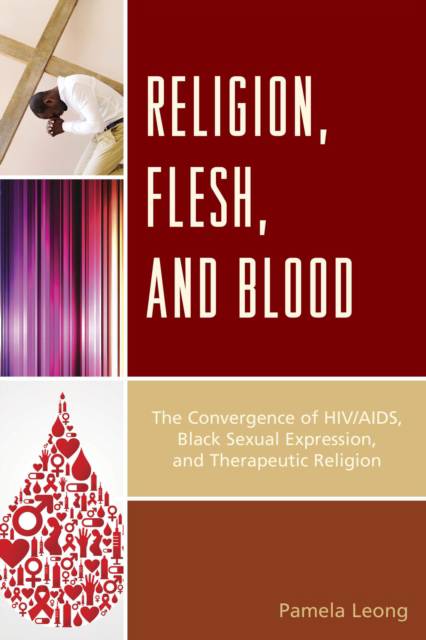
- Afhalen na 1 uur in een winkel met voorraad
- Gratis thuislevering in België vanaf € 30
- Ruim aanbod met 7 miljoen producten
- Afhalen na 1 uur in een winkel met voorraad
- Gratis thuislevering in België vanaf € 30
- Ruim aanbod met 7 miljoen producten
Zoeken
Religion, Flesh, and Blood
The Convergence of HIV/AIDS, Black Sexual Expression, and Therapeutic Religion
Pamela Leong
Hardcover | Engels
€ 195,45
+ 390 punten
Omschrijving
This book presents a portrait of a congregation that blends therapy and religion, producing a "therapeutic religion" in which the role and meaning of religion are open to interpretation, religious identities are shaped by life experiences, and healing of the person is underscored. The book also highlights some of the tensions this produces.
Specificaties
Betrokkenen
- Auteur(s):
- Uitgeverij:
Inhoud
- Aantal bladzijden:
- 168
- Taal:
- Engels
Eigenschappen
- Productcode (EAN):
- 9780739194423
- Verschijningsdatum:
- 6/05/2015
- Uitvoering:
- Hardcover
- Formaat:
- Genaaid
- Afmetingen:
- 150 mm x 231 mm
- Gewicht:
- 430 g

Alleen bij Standaard Boekhandel
+ 390 punten op je klantenkaart van Standaard Boekhandel
Beoordelingen
We publiceren alleen reviews die voldoen aan de voorwaarden voor reviews. Bekijk onze voorwaarden voor reviews.







